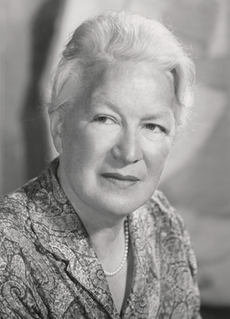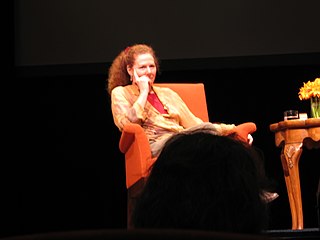A Quote by Wilhelm Dilthey
However, the sciences of society and of history retained their old subservient relation to metaphysics for a long time - well into the eighteenth century.
Related Quotes
The role of metaphysics in relation to other disciplines, whether philosophical or not and including the natural sciences, is thus a foundational role. Lack of clarity in the concepts of metaphysics implies lack of clarity in other disciplines - both theoretical and practical disciplines - employing those concepts or employing concepts that depend on those of metaphysics.
Kant's treatments of rational theology and metaphysics were aimed primarily at theoretical questions. His attitude toward the pseudo-sciences of "special metaphysics" in Wolff and Baumgarten was always double-edged. He did see them as pseudo-sciences but also valued their doctrinal value and especially their regulative value for the empirical sciences. Like his views about religion, I don't think any of this is any longer viable in its original form.
It is time... to end the long-standing and unproductive methodological debate over 'originalism' versus 'dynamism' or 'evolution' and focus instead on how, as a substantive matter, we should interpret the Constitution in the twenty-first century, and what it has to say on questions unimaginable to our eighteenth-century Framers.
What makes 'The Marriage of Souls' such a wonderful book is Collins's intricate reconstruction of the late eighteenth-century world. Simplicity and philosophy are the hallmarks of eighteenth-century art and architecture. The classically pure lines look deceptively simple and unburdened by heavy symbolism or imagery.
Almost everyone... seems to be quite sure that the differences between the methodologies of history and of the natural sciences are vast. For, we are assured, it is well known that in the natural sciences we start from observation and proceed by induction to theory. And is it not obvious that in history we proceed very differently? Yes, I agree that we proceed very differently. But we do so in the natural sciences as well.
A well-known magazine asks a man how they should refer to him, as Psychologist X, as Author X? He suggests man of letters, for that is what he is, in the eighteenth-century meaning. But they can't buy that because the word doesn't exist in Time-style; he cannot be that, and presumably the old function of letters cannot exist.
I think I was born with a sense of instantaneous connection between the things I perceived in the world and my feelings about those things my character has served me well it has made me. well, an eighteenth -century man of letters, though one who happens to be female and lives in twentieth-century Berkeley.
Should an anthropologist or a sociologist be looking for a bizarre society to study, I would suggest he come to Ulster. It is one of Europe's oddest countries. Here, in the middle of the twentieth century, with modern technology transforming everybody's lives, you find a medieval mentality that is being dragged painfully into the eighteenth century by some forward-looking people.
It happens from time to time in every complex and active society, that certain persons feel the complexity and insistence as a tangle, and seek freedom in retirement, as Thoreau sought at Walden Pond. They do not, however, in this manner escape from the social institutions of their time, nor do they really mean to do so; what they gain, if they are successful, is a saner relation to them.








































